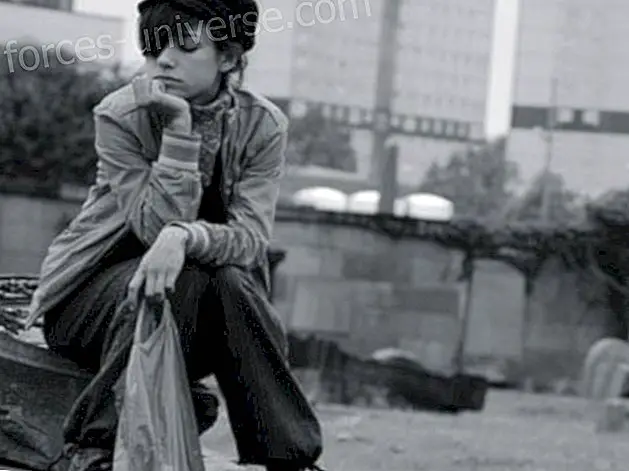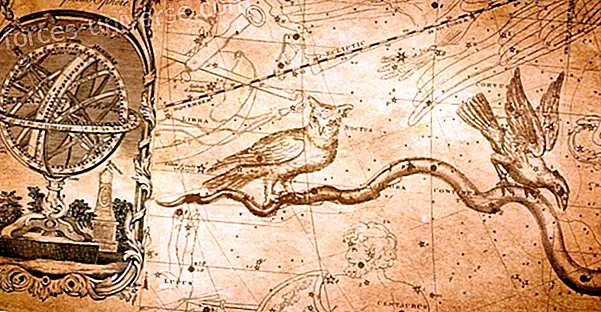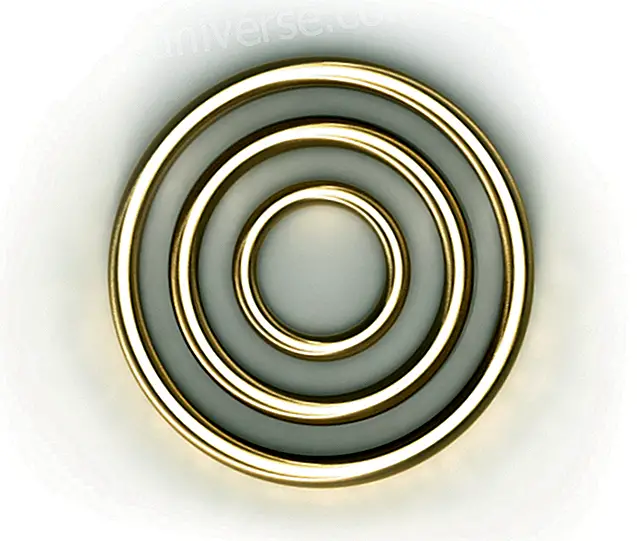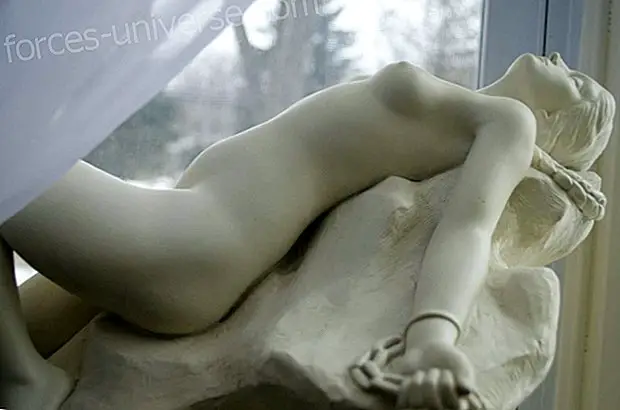
"We must not give up the past because it is bad, but because it is dead"
(Tony de Mello)
Indeed, we must not renounce the past because it is bad, nor do we have to get hooked on it because it was good: we must let it continue in the memory, more or less alive, but as a silent guest we go to when one wants, but, while, does not hinder and hinder.
The past is the way we call everything that happened just before this moment.
It is made up of all the experiences we had, the beautiful messages that things left us when they happened, or the injuries they caused us; for the people we tried, for the dreams we had, for the joys and disappointments, for the kisses and the wounds, for what we did and for what we didn't do.
It feeds, almost always, on nostalgia or regret.
It has no entity. It cannot be touched, nor can it be seen: only some photos or written documents record that it was once present.
But the past is not what we archive in the mind, because it is always in charge of giving its particular version and adding or removing, according to the interests of each of those memories; also, forget, or let time round the edges as rivers do with stones. It also allows that, since the bad memories were created, they gain weight wildly until they get out of their reality.
Our past, on many occasions, is not the reality of what happened, but an opinion of what happened.
In the past we go through memory, and of course we have to remember the past, but in order to feel it as a foundation of our being, as a source of experiences and learning; yes, always remembering instantly that it is not happening "now", which is not our "now".
Most of the time we fall into the trap that tends us: the moments of the past emerge to the conscious mind (it seems that this is driven by the desire for evolution) and we tend to believe that we are reliving it.
This brings the past to the "now" with such intensity that it replaces it. If so, then we lose contact with the correct priority of time, because the person tends to respond to the same situations or the same answers, until he is aware of his "now" and his desire to act as "now."
It is very important to clearly understand this last aspect of its use, because, on many occasions, we tend to go to the past and settle in it, which is not the same as bringing it to us to remember, enjoy, or learn.
I explain:
This is an imaginary representation of our passage through the years: we start from scratch and go to the last. It is not correct because we do not go through the years, but we are always in the present, today.
But, for those who continue to use this form and until they realize that this is not the case, I tell them where the mistake of using the past is.
I am at one point in my life today (for example, 40 years) and I am going towards the end (for example, 80 years), if I take care to return to the past, towards 20 years, towards 30 years, I do not advance, but I stop, and even back off.
The right attitude is to bring that stage or situation past today, that she comes, that she accompanies me for a moment in my present or my walk, and, later, she herself returns to the place where she should be.
The difference between the two positions is evident: if I go to my past and settle in it, feeling like I felt in the past, clinging to what has happened, thinking and acting like in the past, I am not living in my present, I don't keep growing, I don't know new lands or broader horizons.
On the other hand, if I bring with the memory, calmly, something that has already happened until the present day, without leaving a single moment of being here, in my actuality, I am still in my Way and he accompanies me for a while.
The past is full of teachings, there is no doubt, of which we have seen some and others are hidden, because then we did not see them or did not want to see them.
It usually happens a lot with the sad situations of the past, that we have only extracted from them the suffering and we have remained without apprehending the lesson, with which we run the risk more than probable that it will be repeated.
Of course it is good to bring these situations back to the present, but to examine them in the serene light of the present, to take out the juice they carry, and to take out the warning or advice.
It should not hurt to delve a little beyond where the suffering is, because just immediately behind the lesson of that experience appears in all its magnitude.
And it is important to review the attitudes of the past, because on many occasions, and without being aware of it, we are acting accordingly.
The constant repetition of phobias, experiences and traumas of the past continue to hold us painfully anchored in the past.
Look at this: there are no "habits" in the "now", because the "now" is constantly being born; The "now" is always a new experience through which there is a feeling of novelty everywhere. The "now" is a virgin, and in the "now" everything is to be done and can be done in the way that one freely decides to do.
Bringing the past to the present, with the aim of learning, is a good decision, because it is through this that we can find what is called the programmed mind.
It consists of realizing that education, experiences, and ways of acting in the past. If we do not update them, they continue sending in us, making us work in a mechanical way and with the data that they instilled in us then or that we have dragged since then.
We can study many things and realize many others, but if we do not go to the origin where the decision-making and the forms of action were born, the place where the command control is located, and if we do not check if it works autonomously and unconsciously, or if we are not able to act in a fresh and different way in each one of the situations, we will never know how much there is of freedom and of our own will in each one of the thoughts that are born to us; we will never know who has told us what we have to do, why and how; we will never know how much of childish fears or wrong education we keep dragging; We will never know if we are being what we could be or if we remain governed by a programmed mind that does not know how to get out of the constant repetition of the same response to the same stimulus.
It would be good to ask, is it really me?
Or does this mind that inhabits me become a dictator? ...
Are you sure you distinguish between me and my mind?
It is very important from the present to see the past and become aware and possess the present, to inaugurate everything: from a different way of thinking (in the case of what is necessary to modify, since it is not necessary to modify everything and why) a new conception of the way of feeling or living.
It's good to check if you still believe and drag things from yesterday.
For example, if you have a complex that you are bad draftsman because at school you got bad grades in drawing ...
What do you care now?
Why do you still feel within yourself an incapacity that is useless to you, but instead dyes a part of you of a sober color?
What does it matter if you were a bad goalkeeper in school and you scored a lot of goals and the rest of your teammates made fun of you?
You are no longer in school
Being a bad goalkeeper corresponds to the past
Can't you forgive yourself for that, or erase it completely with all its sequels - and start over?
What does it matter if your mother said you were a bad cook because it cost you work to learn?
Do you not know how to cook now?
What does it matter if you were the ugly dance duck, if you have now discovered that there are other types of beauty?
You already know that you don't have to be the best of everything, or the one who is welcome, but you have to be who you are; Be yourself, as far as you can go, as far as you can.
The past can become a relentless bond that fights fiercely to keep us by its side.
The past does not release us, as if we were its most coveted prey; He deceives us by telling us that he is the experience we have already had and that we can be calm there; the past engatusa, lies to us saying that we are the past; the past denies the future and proclaims that only he is true, and tricks us by reciting the saying that it is more bad known than good to know; the past ties us, and stagnates us; it cuts our wings, and tries to convince us that we cannot escape from it, because it contains and maintains things that we have to repent of and for which we still have to suffer a little more.
And it is not true.
The past does not exist.
The past is something that died long ago.
The only thing left is the phantom of its passage, but we must have the security and peace of knowing that it cannot follow us, nor can it catch us, nor can it send its demons to us if we are not open to accept them
Become aware of the present, knowing that it is in the present where we are all the time and that we can freely make the decisions we want by our own will-, and make the firm and sensible decision to escape from the bad influences of the having spent all good at the same time, it is an arduous and rewarding task that would be good to take up all the time that is yet to come.
It will be great to escape the bad influences of that cruel part of the past that recriminates us and forces us negatively, and strives in the noble task of building a present that is unconditioned, free, pleasant and gratifying.
(Francisco de Sales, is the creator of the web www.buscandome.es, for people interested in psychology, spirituality, improvable life, Self-knowledge and Personal Growth)
Abandon the weight of the past by Francisco Sales






